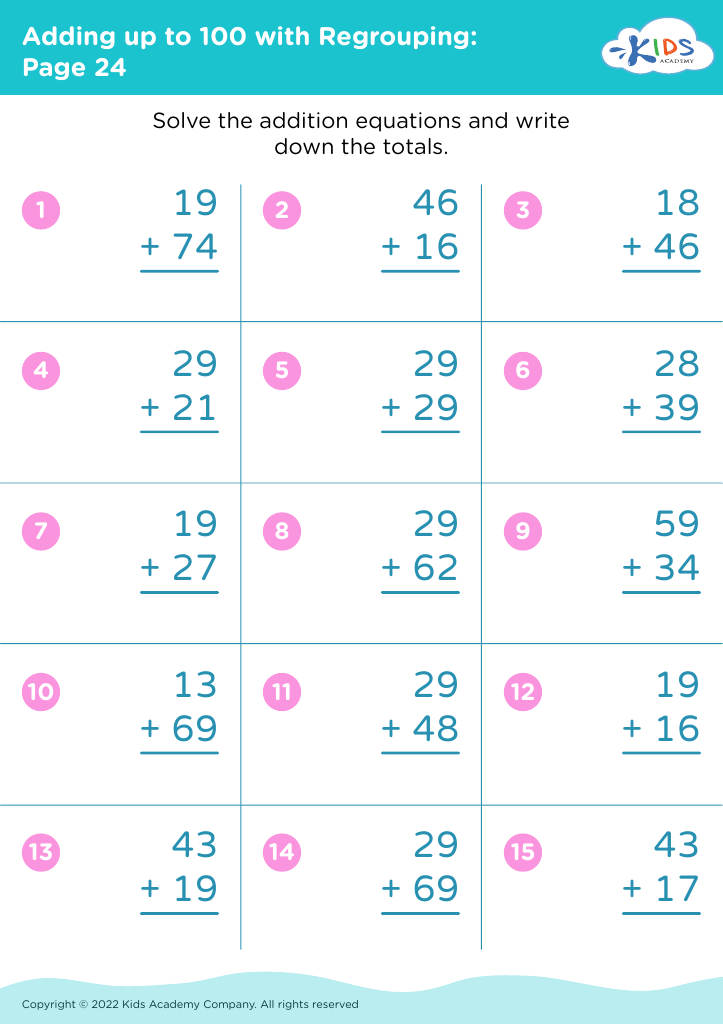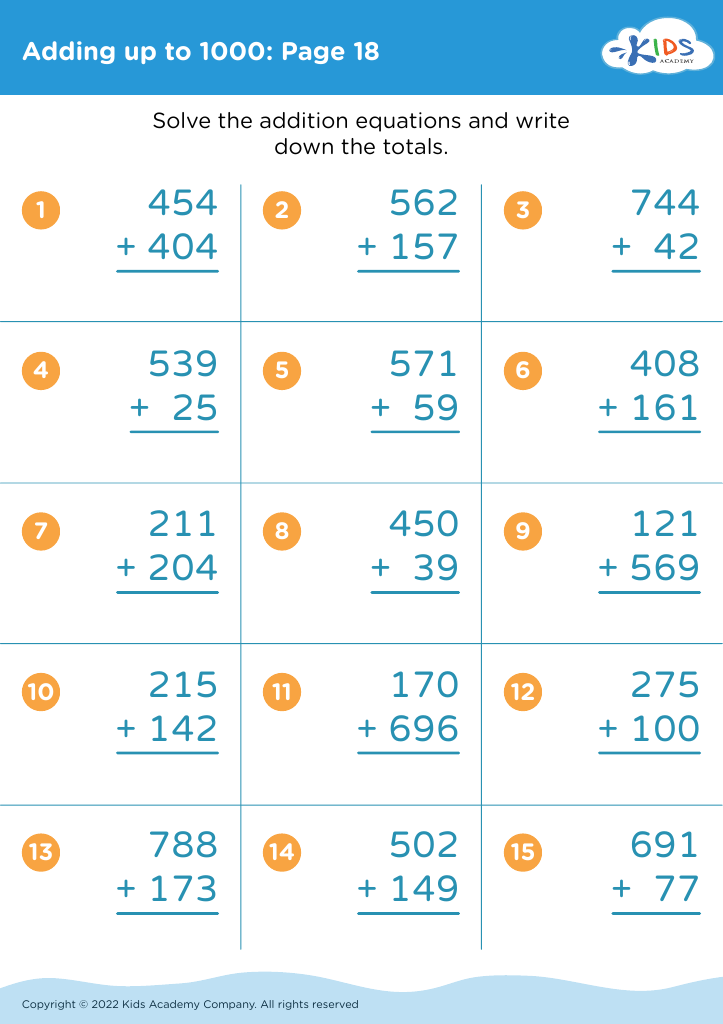Spatial awareness Addition Worksheets for Ages 7-8
5 filtered results
-
From - To
Enhance your child’s math skills with our engaging Spatial Awareness Addition Worksheets designed specifically for ages 7-8. These worksheets combine the fundamentals of addition with spatial reasoning activities, fostering a deeper understanding of numbers and their relationships. By exploring concepts such as shapes, directions, and position, children will boost their cognitive abilities while mastering addition. Each worksheet encourages children to visualize problems and enhance their problem-solving skills through fun and interactive exercises. Make learning enjoyable and effective with our thoughtfully crafted resources that not only build math proficiency but also promote essential spatial awareness in young learners.
Spatial awareness is a crucial cognitive skill that shapes a child's understanding of how objects relate in space. For children aged 7-8, developing spatial awareness playfully enhances their ability to grasp concepts in mathematics, particularly addition. When parents and teachers prioritize spatial awareness activities, they inherently encourage children to visualize and manipulate numbers and shapes, leading to stronger problem-solving skills.
In the realm of addition, spatial awareness helps children visualize number lines, understand fractions, and categorize numbers efficiently. Engaging in games that involve arrangement, such as building blocks or puzzles, is a fun way to promote these skills. Children can benefit from learning how to organize terms in an addition problem or visualize sums visually, connecting abstract concepts with physical space.
Moreover, strong spatial awareness correlates with improved performance in STEM (Science, Technology, Engineering, and Mathematics) fields later in life. This foundational skill not only supports academic excellence but also nurtures critical thinking and creativity. By recognizing the importance of spatial awareness in addition, parents and teachers can better equip children with the tools needed for lifelong learning and cognitive development, reinforcing their confidence in math and other subjects as they progress academically.


























